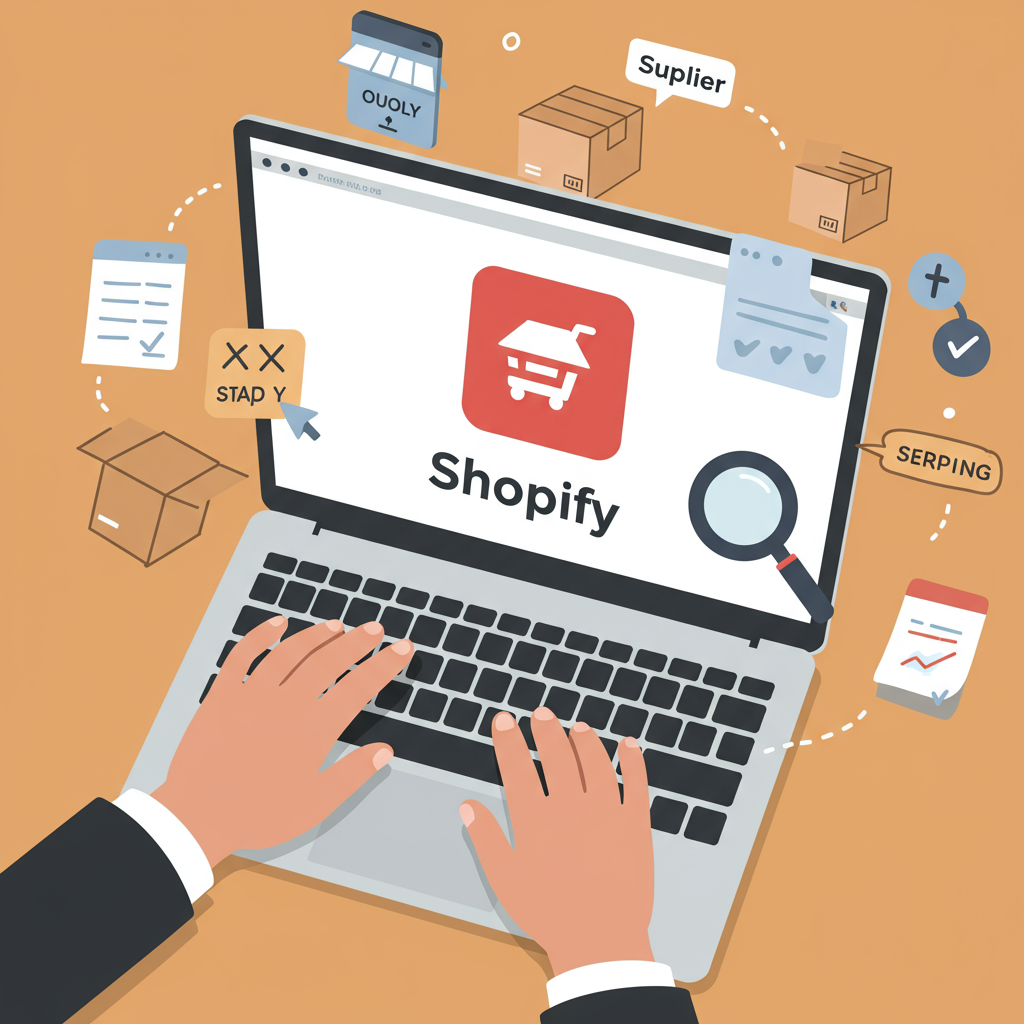Unlocking Success on Shopify by Connecting with the Right Partners Through Supplier Directories
As a Shopify merchant, I know firsthand the excitement and challenges of building an online store. One of the most appealing business models, especially for those just starting out, is dropshipping. It promises low overhead and minimal inventory risk, but its success hinges entirely on one critical factor: your suppliers.
Without reliable suppliers, your dropshipping dream can quickly turn into a nightmare of delayed shipments, poor product quality, and frustrated customers. I’ve seen it happen, and I’ve learned that finding trustworthy partners is paramount.
This is where dropshipping supplier directories come into play. Think of them as curated marketplaces, designed specifically to connect you, the merchant, with a vast network of pre-vetted manufacturers and wholesalers ready to fulfill your orders.
My journey in e-commerce has taught me that while the internet offers an endless sea of potential suppliers, sifting through them to find legitimate, high-quality ones can be incredibly time-consuming and risky.
Many new dropshippers fall into the trap of simply searching on Google, only to encounter middlemen, scams, or suppliers who can’t deliver on their promises. This is precisely why I advocate for using established supplier directories.
These directories aren’t just lists; they are often comprehensive platforms that offer tools, resources, and a level of vetting that you’d be hard-pressed to achieve on your own. They act as a crucial filter, saving you immense time and potential headaches.
One of the primary benefits I’ve experienced with these directories is the peace of mind that comes from knowing the suppliers listed have undergone some form of verification. This significantly reduces the risk of encountering fraudulent operations.
Furthermore, these platforms typically offer a wide array of products across various niches. Whether you’re selling fashion, electronics, home goods, or pet supplies, you’re likely to find multiple suppliers catering to your specific market.
I also appreciate that many directories provide detailed information about each supplier, including their product catalogs, minimum order requirements (if any), shipping policies, and even customer reviews from other merchants.
When I evaluate a dropshipping supplier directory, I look for several key features. First, the quality and depth of their supplier vetting process are non-negotiable. I want to know they’ve done their homework.
Second, I consider the breadth and diversity of their product offerings. A good directory should not limit you to just one or two categories but provide options across many different niches.
Third, seamless integration with Shopify is a huge plus. Many modern directories offer apps or direct integrations that allow for easy product importing, order syncing, and automated tracking updates. This saves me so much manual work.
Fourth, I pay attention to their pricing model. Some directories charge a one-time fee, others a monthly or annual subscription. I weigh the cost against the value and the potential for long-term savings and efficiency.
Fifth, I look for directories that offer robust customer support and educational resources. As a merchant, I sometimes need guidance, and a platform that supports my growth is invaluable.
Sixth, the presence of real merchant reviews and ratings for individual suppliers within the directory is incredibly helpful. It provides social proof and insights into other merchants’ experiences.
While specific directory names like SaleHoo, Worldwide Brands, or Doba often come up, my advice is to research the one that best aligns with your specific business needs and budget. Each has its unique strengths and weaknesses.
For instance, some might specialize in high-ticket items, while others focus on trending consumer goods. It’s crucial to match the directory’s strengths with your product strategy.
Beyond dedicated directories, I’ve also explored direct sourcing from platforms like AliExpress or Alibaba. While these can offer competitive prices, they require a much higher degree of due diligence on your part.
With direct platforms, you’re often dealing directly with manufacturers or large wholesalers, which can be great for margins, but you lose the vetting layer that a dedicated directory provides.
Once you’ve identified potential suppliers, whether through a directory or direct sourcing, my next step is always to test their service. I place a small test order to assess product quality, packaging, and shipping times.
Clear communication is also vital. I establish open lines of communication with my chosen suppliers, ensuring I understand their policies on returns, refunds, and stock availability.
I also make sure to have a clear understanding of their order fulfillment process. How quickly do they process orders? What shipping carriers do they use? How are tracking numbers provided? These details directly impact customer satisfaction.
What do you think about the importance of these directories in streamlining the dropshipping process? I’m always curious to hear other merchants’ perspectives.
Finally, be wary of common pitfalls. Avoid suppliers who demand high upfront fees without clear benefits, those with consistently poor reviews, or those who are unresponsive to inquiries.
In conclusion, while dropshipping offers incredible opportunities, its foundation is built on strong supplier relationships. Leveraging a reputable dropshipping supplier directory is, in my experience, one of the smartest investments you can make.
It empowers you to focus on marketing and customer service, knowing that the backbone of your operation – product sourcing and fulfillment – is in reliable hands.
By carefully selecting and utilizing these resources, you can significantly increase your chances of building a successful and sustainable Shopify dropshipping business.






